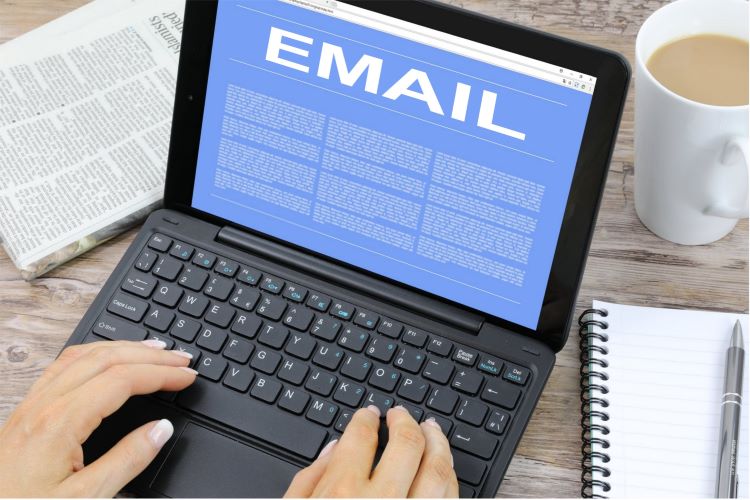In today’s world, email has become an essential mode of communication, especially for business professionals. It’s a quick and effective way to send and receive messages, but it’s important to follow the proper email writing format to make sure your message is professional and effective.
In this blog post, we’ll take a look at what email writing is, the format you should use, business email writing, and some email writing format samples, and conclude with some tips on how to make your emails more effective.
What is Email Writing?
Email writing is the process of composing and sending electronic messages to one or more recipients. It’s an essential tool for communication in today’s fast-paced business environment, and it allows individuals to connect and communicate with others across the globe instantly.
Also Read: How to Enhance Your Presentation Skills? Learn Effective Ways to Improve Your Skills
Email Writing Format
A well-written email has the potential to build strong business relationships, enhance your reputation, and help you achieve your goals. To ensure your email is professional and effective, it’s important to follow the proper email writing format. Here are the essential elements of email writing format:
- Subject Line: The subject line is a brief, clear description of the content of the email. It should be specific and should summarize the main message of the email. A good subject line is essential for grabbing the reader’s attention and making sure they open and read your email.
- Salutation: The salutation is a polite greeting to the recipient of the email. Depending on the relationship between you and the recipient, you can use “Dear” followed by their name or use “Hello” or “Hi.”
- Opening: The opening of your email should be warm, welcoming, and engaging. It should convey the purpose of the email, and set the tone for the rest of the message.
- Body: The body of the email is where you should provide the details of the message. Be clear and concise and avoid using long paragraphs. Use bullet points, subheadings, and bold text to make your message more readable.
- Closing: The closing of the email should be polite and professional. Use a polite phrase such as “Sincerely” or “Best regards” followed by your name.
- Signature: Your signature should include your name, job title, and contact information such as your phone number and email address.
Business Email Writing
Business email writing requires a higher level of professionalism and formality than personal emails. Here are some tips for writing effective business emails:
- Keep it brief: Business professionals are busy and don’t have time to read long emails. Keep your emails brief and to the point.
- Use a professional tone: Use a formal and professional tone in your emails. Avoid using slang or emojis, and always be respectful.
- Use proper grammar and punctuation: Poor grammar and punctuation can make you appear unprofessional. Always proofread your emails before sending them.
- Use clear and concise language: Be clear and concise in your writing. Use bullet points and subheadings to make your message more readable.
- Be respectful of your recipient’s time: Don’t send unnecessary emails. Make sure your message is important and relevant to the recipient.
Also Read: How to Give a Killer Presentation? Let’s Know About Presentation Skills Courses?
Email Writing Format Samples
Here are some email writing format samples that you can use as a guide when writing your own emails:
- Sample Email Writing Format for a Job Application:
Subject: Application for the [Job Title] position at [Company Name]
Dear [Hiring Manager’s Name],
I am writing to express my interest in the [Job Title] position at [Company Name]. I have [Number] years of experience in [Industry] and believe that my skills and experience would be a great asset to your team.
In my current position at [Current Company Name], I have [Achievement 1
- Achieved [Accomplishment 1]
- Successfully implemented [Project 1] which resulted in [Benefit 1]
- Demonstrated strong leadership skills while managing a team of [Number] employees
I am confident that my experience and skills make me a strong candidate for the [Job Title] position. I have attached my resume and would be happy to provide references upon request.
Thank you for considering my application. I look forward to the opportunity to discuss my qualifications further.
Sincerely,
[Your Name]
- Sample Email Writing Format for a Meeting Request:
Subject: Request for a meeting
Dear [Recipient’s Name],
I hope this email finds you well. I would like to request a meeting with you to discuss [Topic]. I believe that your insights and expertise would be valuable in this discussion.
I am available on [Date] at [Time] or [Date] at [Time]. Please let me know which time works best for you. If none of these times are convenient, please suggest a time that works for you.
Thank you for your time and consideration. I look forward to meeting with you.
Best regards,
[Your Name]
Conclusion
In conclusion, email writing is an essential tool for communication in today’s fast-paced business environment. To ensure your emails are professional and effective, it’s important to follow the proper email writing format. Remember to keep it brief, use a professional tone, and be respectful of your recipient’s time. With the right email writing format and a little bit of practice, you can write effective emails that will help you achieve your goals.
Tips for Writing Effective Emails
Now that you know the essential elements of email writing format, here are some tips for making your emails more effective:
- Write a clear subject line: Your subject line should summarize the main message of your email in a clear and concise way. A clear subject line will help your recipient know what the email is about and can increase the likelihood of them reading it.
- Use a professional email address: Use a professional email address that includes your name or your business name. Avoid using email addresses that are too casual or inappropriate.
- Address your recipient by name: Use your recipient’s name in the salutation to personalize your email and show that you value their time and attention.
- Keep it brief and to the point: Keep your email concise and to the point. Avoid using long paragraphs or unnecessary information.
- Use proper grammar and punctuation: Use proper grammar and punctuation to make your email professional and easy to read.
- Proofread your email: Always proofread your email before sending it to avoid mistakes and errors. You can also use a spell-checker to catch any errors that you might have missed.
- Avoid using jargon or technical terms: Use simple and clear language that can be easily understood by your recipient. Avoid using jargon or technical terms that might confuse them.
- Use a friendly tone: Use a friendly and warm tone in your email to build a good relationship with your recipient. Remember that emails are a form of communication, and communication is all about building relationships.
Conclusion
In conclusion, email writing is an essential tool for communication in today’s business world. By following the proper email writing format, using a professional tone, and being clear and concise in your message, you can write effective emails that will help you achieve your goals.
Remember to keep it brief, proofread your email, and use a friendly tone to build strong business relationships. With the right email writing skills, you can make a positive impression on your recipients and achieve success in your professional endeavours.






